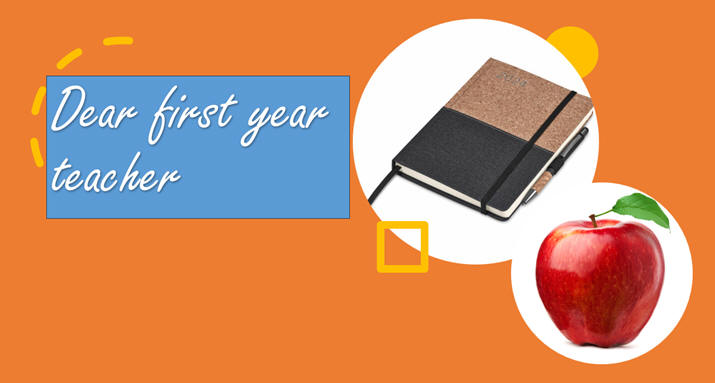|
|
 Stepping
into a South African public school as a teacher is like entering
a bustling marketplace; vibrant, diverse, and full of potential.
While navigating this exciting space, building positive
relationships with your colleagues, learners, and the principal
is crucial for a successful first year. Stepping
into a South African public school as a teacher is like entering
a bustling marketplace; vibrant, diverse, and full of potential.
While navigating this exciting space, building positive
relationships with your colleagues, learners, and the principal
is crucial for a successful first year.
Here are some
Do's and Don'ts to guide you:
A: Do's:
-
Colleagues:
- Seek
mentorship: Find experienced teachers you can
approach for guidance and support. Their insights into
school culture, curriculum specifics, and classroom
management can be invaluable.
-
Embrace collaboration: Share lesson plans, teaching
tips, and resources with colleagues. Collaborative
planning can enrich your own teaching and benefit all
learners.
-
Respect diversity of opinions: Public schools
encompass a vast range of teaching styles and
philosophies. Listen to your colleagues with an open
mind and learn from their perspectives.
-
Volunteer and show you are willing to learn and help
with school activities.
-
Politely ask where you can sit in the staff room.
Some staff members have their favourite spots.
-
Find out where you can park your car before you
accidentally end up in someone else's parking spot, or
worse, the principal's parking spot.
- Learners:
- Get
to know them individually: Invest time in
understanding each learner's name, background,
strengths, challenges, and learning styles. This
individualizes your teaching and builds trust.
-
Foster a safe and inclusive classroom: Ensure every
learner feels respected and valued, regardless of their
background or ability level. Promote open communication
and address any bullying or discrimination swiftly.
- Set
clear expectations and provide regular feedback:
Clearly communicate learning objectives, assessment
criteria, and classroom rules. Give constructive
feedback often to help learners improve.
- Be
fair and consistent.
-
Rather be a little too strict than too lax with
learners at the beginning of your career.
-
Principal:
-
Maintain open communication: Keep the principal
informed about your successes, challenges, and any
learner issues. Regular communication builds trust and
fosters a collaborative environment.
-
Actively participate in school initiatives: Show
your willingness to contribute to the school community
by getting involved in events, committees, or
professional development opportunities.
- Seek
feedback and guidance: Don't hesitate to ask the
principal for feedback on your teaching and suggestions
for improvement. Their insight can help you grow
professionally.
B: Don'ts:
-
Colleagues:
-
Engage in gossip or negativity: Avoid criticizing
colleagues or participating in schoolyard politics.
Maintain a positive and professional attitude towards
everyone.
-
Compete instead of collaborate: Teaching is not a
solo game. Sharing resources and expertise benefits all
educators and ultimately, the learners.
-
Ignore school policies or procedures: Familiarize
yourself with school policies and procedures, and adhere
to them. Respecting established guidelines ensures
smooth operation and fosters professionalism.
- Learners:
- Make
assumptions about learners' abilities: Every learner
brings unique potential and challenges. Avoid
stereotyping or underestimating any learner's
capabilities.
-
Favour individual learners: Treat all learners with
fairness and respect. Avoid biases or favouritism, which
can damage classroom morale and trust.
- Give
up easily on struggling learners: Every learner
requires your support and guidance. Differentiate your
teaching and provide extra help to those who need it
most.
- Never
get too familiar with learners. Maintain a
professional relationship.
- Mood
swings.
-
Principal:
- Avoid
unnecessary conflict: If you have concerns, raise
them with the principal respectfully and professionally.
Seek solutions through open communication and
compromise.
-
Disregard feedback or directives: Be open to
constructive criticism and guidance from the principal.
Their feedback can help you improve your teaching
practice.
- Go it
alone: Remember, the principal is there to support
you. If you face challenges, reach out for assistance
and leverage the school's resources.
Bonus tips:
- Be kind,
cheerful and enjoy your first of many wonderful years of
teaching.
- Be friendly
with the administrative staff, the caretaker and
cleaners. Treat them with respect because they can make
your life very easy. Or difficult.
- Learn a few
basic phrases in some of the local languages spoken
by your learners and colleagues. This gesture shows respect
for their cultural heritage and strengthens relationships.
- Rather do
too much too soon than too little too late.
-
Familiarise yourself with the content of the PAM document
(Personnel Administrative Measures), because it contains
all the conditions of service. It is available at
https://bit.ly/PAM-2022.
Navigating
the South African public school landscape is a rewarding
journey, especially when you actively build positive
relationships with your colleagues, learners, and the principal.
By following these Do's and Don'ts, you can approach your first
year with confidence, make a positive impact on your learners,
and thrive as a teacher in this vibrant educational environment.
Remember,
you are not alone on this journey. Embrace the challenges,
celebrate the successes, and enjoy the incredible experience of
shaping young minds in South Africa's diverse and dynamic public
schools. |
|
 Stepping
into a South African public school as a teacher is like entering
a bustling marketplace; vibrant, diverse, and full of potential.
While navigating this exciting space, building positive
relationships with your colleagues, learners, and the principal
is crucial for a successful first year.
Stepping
into a South African public school as a teacher is like entering
a bustling marketplace; vibrant, diverse, and full of potential.
While navigating this exciting space, building positive
relationships with your colleagues, learners, and the principal
is crucial for a successful first year.